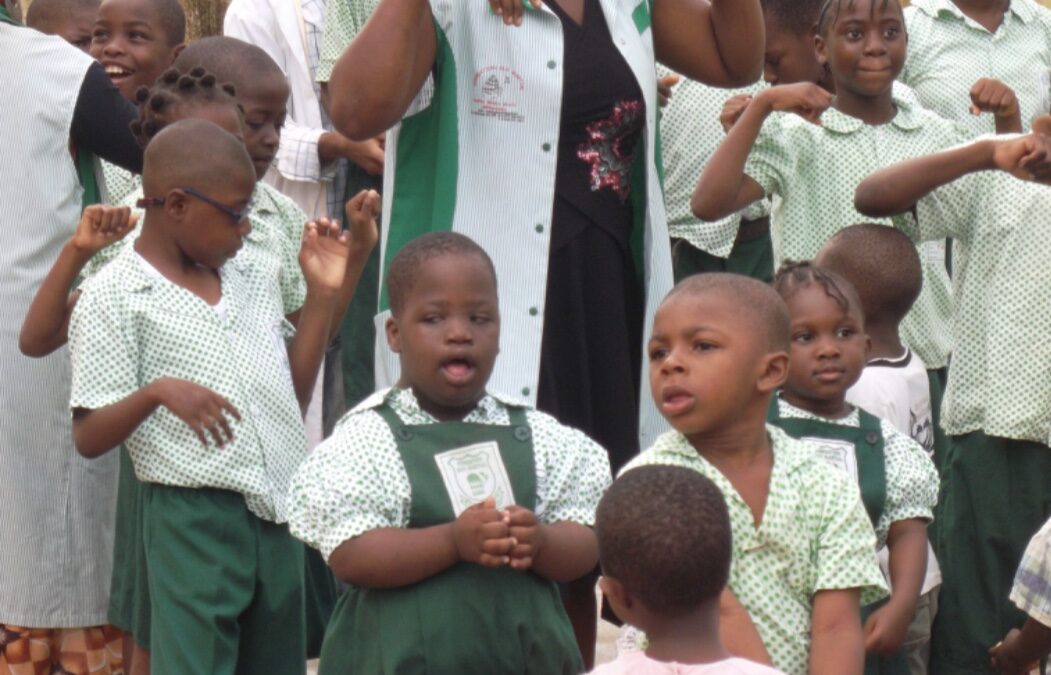This week, EdLive presents a portrait of Guy Martial Ngowa Nzali and the foundation his mother, Dorothée Nzali, created. Guy, a young Cameroonian who suffers from cerebral palsy affecting his motor skills and language, had a difficult school career that he was able to overcome. Today, with a degree in software engineering from ETS, he works as an engineer in Quebec. At her son's request, Dorothée Nzali founded the Guy Martial Foundation in 2005 to help disabled children in Cameron, who are too often marginalized and left without appropriate educational support. EdLive invites you to discover this magnificent interview below.
Could you tell me a little about your background?
Guy: I was born in Cameroon. I grew up in my native country. I came to Quebec at the age of 23 to continue my studies at ETS (Ecole de Technologie Supérieure). I studied there for 7 years and now have a bachelor's degree in engineering.
And why Quebec?
Guy: Initially, I had the choice between France and Quebec. With my parents and family, we weighed up the pros and cons of each option. For example, overcrowding in France creates a somewhat difficult environment for the integration of people with disabilities. The resources available may be limited in France. From the point of view of openness - and this is my point of view - France has already reached its peak, while Quebec is still on the way up. Quebec is learning from the mistakes of France, America and many other countries.
What are the educational structures for disabled people in Cameroon like?
Guy: As time goes by, Cameroon, like every other country in the world, is trying to adapt. It's true that we're lagging behind, but I don't think we're as far behind as Quebec, for example, or France. It all depends on how you look at it. The three major differences are in technology, law enforcement in general and the structuring of services, that's my point of view. In my country, for example, I was one of the first students to pass the Certificat d'Etude Primaire (CEP). It was when I passed my primary school certificate that the government started to take our handicaps into account in the examination forms, 15 years ago. At the BEPC (Brevet d'Etude du Premier Cycle), it was the same thing. I was the first, so we had to find a way to adapt. As I progressed, I opened doors.
In Quebec, I don't know exactly how things went. But when I first arrived, it wasn't as easy as you might think. I had to fight to assert my place with certain people around me (friends, teachers, classmates...). Indeed, I constantly found myself in the ETS laboratories after 1:00 am because I had to finish an assignment or revise my lessons. It's no exaggeration to say that it became my second home. My weekends were spent trying to catch up with the others. But sometimes to no avail. So I didn't have time for anything other than school (parties, entertainment, etc.). It was also the price I had to pay to become what I am today, "Junior Engineer", because my handicap comes with a certain slowness in the execution of tasks.
Can you tell me a little about your foundation?
Guy: At the end of my kindergarten years, the headmistress of my school told my mother to look for a more suitable school for me. After that, we started looking around... In the end, they put me in a school for the mentally handicapped. There was no schooling there, it was mainly rehabilitation. At some point, during the day, we were asked to go to sleep. But I'd started at nursery school, where I was already learning to write and count. The re-education we did there enabled me to overcome some of the problems I had. But I didn't feel at home.
The following year, when my mother wanted to re-enroll me there, I asked her if that meant I wasn't normal. When I asked her that, she went straight to looking for another school. I went to the SIL (Section d'Initiation au Langage) school for the deaf and dumb in CE1.
After that, my mother saw that my behavior had changed, because I was expressing myself more with sign language than with speech. She decided to take me back to "normal" school. We met a lot of schools that refused to take me. We came across a school principal who decided to evaluate me. When I was assessed, he saw that I was at the right level and took me on in CE2. I went from CE2 to CM2 in this school. It wasn't easy, but as I was saying earlier, the principal, my parents and my teachers found ways of adapting me: it could be recording lessons, note-taking by the teacher, extra time on exams... When I passed my CEP, the school wrote a letter to say they had a special case on hand and needed certain accommodations. That's how I was able to pass my exams.
It was precisely after my CEP that I felt an enormous sense of joy. There were people around me who didn't believe I could get it. That same week, I ran into one of my classmates, a friend of mine, with whom I had attended the rehabilitation center for the mentally handicapped. I met him and asked, "What are you doing now?" and he said he didn't understand what that meant. I took a pebble, wrote my name on the ground and asked him to write his name. He couldn't write his name. It hurt my heart. I left and said to my mother, "Mum, what happened to the other children I worked with at the rehabilitation center for the mentally handicapped? In those days, intellectual disability was considered a mental handicap. My mother couldn't answer. I said, "Mom, we have to open a center to educate these children. We need to open a center that will teach them to write, communicate and go to school like all the other children. My mother told me that it wasn't going to be easy, and that it was a complicated task I was asking of her. That's how, the following year, my mother started school. She trained in psychomotricity. And, in December 2005, we opened the Fondation Guy Martial center.
How does the Guy Martial Foundation currently work with disabled children?
Guy: Each child is treated individually. We have organized our classrooms in the form of CLISS (Classe d'Insertion Scolaire et Sociale). When a child arrives, he or she undergoes a psychomotor examination, after which we know exactly which class he or she should be in. Some children receive special attention, while others progress normally. Care at the foundation can be provided by teachers, the normal school, therapists (i.e. psychomotor therapists, psychologists, etc.) and many other things.
We recently opened a computer center, which we're currently equipping step by step. At the moment, we have a pupil who has passed his CEP, but unfortunately his handicap means he can't go on to secondary school. We have taken him into the computer center, where we hope to turn him into a great computer scientist.
What does the future hold for the foundation?
Guy: Our plan is to spread, not only within Cameroon, but also abroad. It's going to take as long as it takes, but I believe we'll get there. Maybe we won't always be the Guy Martial Foundation, maybe other people will take up our initiative; but my greatest wish is that the idea behind it will be propagated throughout the world, i.e. the integration of children with disabilities in all environments, whether academic, family, professional... My greatest wish is that.
If anyone would like to help or find out more about the Foundation, what should they do?
Ms. Nzali: They can take information directly (by phone, e-mail, Messenger or on our premises), we try to communicate as much as possible and then we let them know what we need.
If you had a message to pass on to the people reading this interview, what would it be?
Mrs. Nzali: My wish is that his dream will come true. When he passed his exam, he asked me what had become of children like him. One day, I told him "what you're asking me is difficult". I had to sacrifice myself, my whole life had to revolve around him and this project, all my movements were fixed on him. I asked myself what I could do to improve his condition, so that he wouldn't feel different from the others. With other parents, it's not always like that. Many children like him are abandoned and their families don't try to understand the problem and help them. Back home, there are still too many superstition problems. People only focus on this to say that the child has difficulties. Of course, this may be the case, but we have to find ways of helping these children, of trying to remedy their situation. And that's what we'd like to do, to really help children in this situation, and especially parents who don't even have the means to provide for their children. The cost is enormous, and you really have to have the means to pay for it. Many parents start and then give up because they don't even have the means of transport to get to the rehabilitation center. It becomes very complicated, and these children have lost their whole lives.
What I bring to the table is a comprehensive approach, including schooling and rehabilitation. I trained in psychomotricity to better understand Guy's problem and see how to remedy it. And that's when I decided to set up a center to help other children like him. It's mainly this psychomotor care that I rely on to help other children. So, when the parents say they understand the need to really make an effort to try and help these children, when they come to me, I take charge of these children and work with them in rehabilitation and/or schooling.
Our wish is to expand the center, to find a suitable site, to make the education of these children financially accessible so that they are valued and don't feel too different from the others. Especially with Guy's support, because it's really not easy. If I've held on so far, it's mainly thanks to Guy's support. He's always said to me, "Mum, you've started, you can't stop there, only you can go on". He told me "I'm doing my studies, I'm coming out an engineer; if I come out an engineer, the money I earn will be reinvested in improving the condition of children indifficulty ", so I'm counting on him. As far as I'm concerned, he's a great help; he's the one who really encourages me in the project.
What he has in mind for these children is so great. I pray that he will be understood by people of good will and that they will invest in this project: to create an appropriate infrastructure for these children; that we can accompany these children as much as we can; and that those who can stand out can stand out and impose themselves in society.
To continue learning more about the foundation, feel free to follow or contact them via Facebook, Instagram, YouTube or their website.


